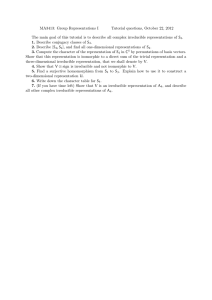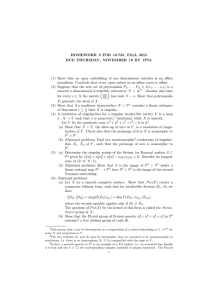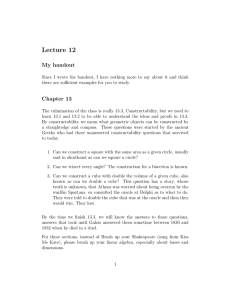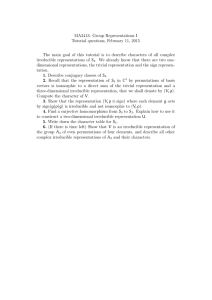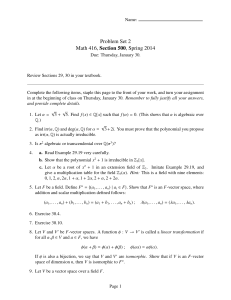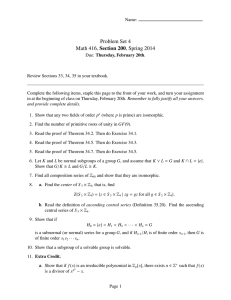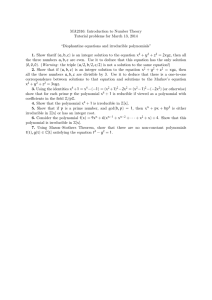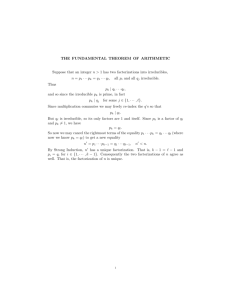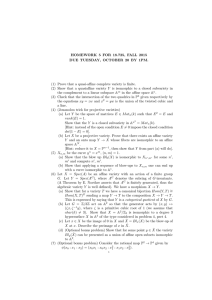18.769: Algebraic D-modules. Fall 2013 Instructor: Pavel Etingof
advertisement
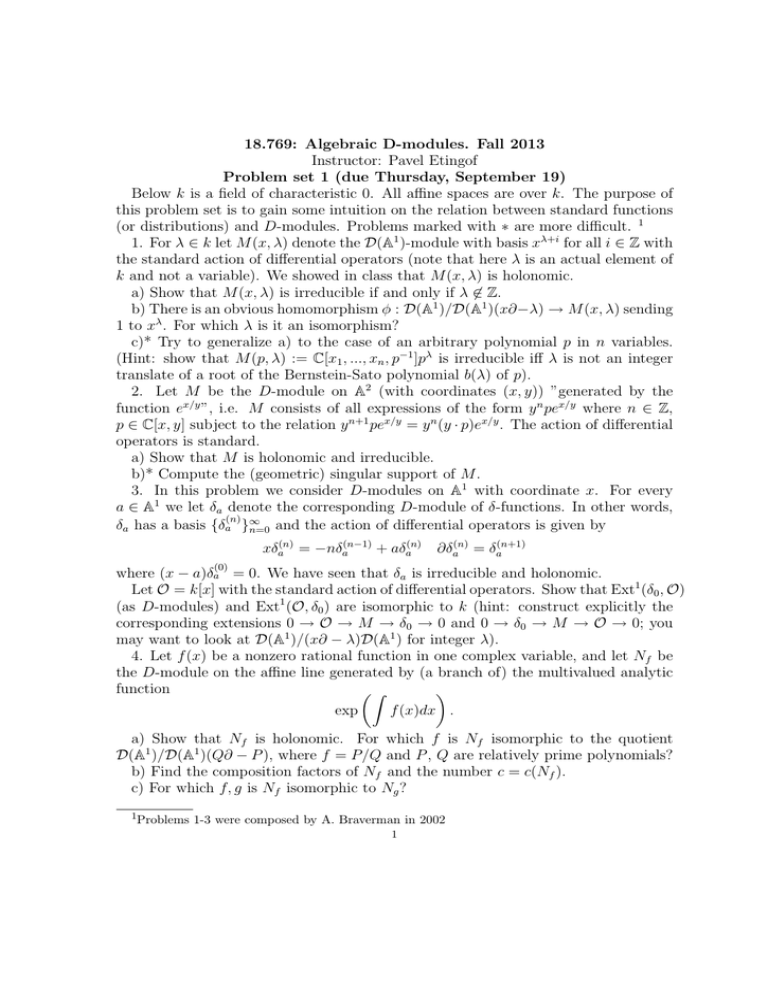
18.769: Algebraic D-modules. Fall 2013
Instructor: Pavel Etingof
Problem set 1 (due Thursday, September 19)
Below k is a field of characteristic 0. All affine spaces are over k. The purpose of
this problem set is to gain some intuition on the relation between standard functions
(or distributions) and D-modules. Problems marked with ∗ are more difficult. 1
1. For λ ∈ k let M (x, λ) denote the D(A1 )-module with basis xλ+i for all i ∈ Z with
the standard action of differential operators (note that here λ is an actual element of
k and not a variable). We showed in class that M (x, λ) is holonomic.
a) Show that M (x, λ) is irreducible if and only if λ 6∈ Z.
b) There is an obvious homomorphism φ : D(A1 )/D(A1 )(x∂−λ) → M (x, λ) sending
1 to xλ . For which λ is it an isomorphism?
c)* Try to generalize a) to the case of an arbitrary polynomial p in n variables.
(Hint: show that M (p, λ) := C[x1 , ..., xn , p−1 ]pλ is irreducible iff λ is not an integer
translate of a root of the Bernstein-Sato polynomial b(λ) of p).
2. Let M be the D-module on A2 (with coordinates (x, y)) ”generated by the
function ex/y ”, i.e. M consists of all expressions of the form y n pex/y where n ∈ Z,
p ∈ C[x, y] subject to the relation y n+1 pex/y = y n (y · p)ex/y . The action of differential
operators is standard.
a) Show that M is holonomic and irreducible.
b)* Compute the (geometric) singular support of M .
3. In this problem we consider D-modules on A1 with coordinate x. For every
a ∈ A1 we let δa denote the corresponding D-module of δ-functions. In other words,
(n)
δa has a basis {δa }∞
n=0 and the action of differential operators is given by
xδa(n) = −nδa(n−1) + aδa(n)
∂δa(n) = δa(n+1)
(0)
where (x − a)δa = 0. We have seen that δa is irreducible and holonomic.
Let O = k[x] with the standard action of differential operators. Show that Ext1 (δ0 , O)
(as D-modules) and Ext1 (O, δ0 ) are isomorphic to k (hint: construct explicitly the
corresponding extensions 0 → O → M → δ0 → 0 and 0 → δ0 → M → O → 0; you
may want to look at D(A1 )/(x∂ − λ)D(A1 ) for integer λ).
4. Let f (x) be a nonzero rational function in one complex variable, and let Nf be
the D-module on the affine line generated by (a branch of) the multivalued analytic
function
Z
exp
f (x)dx .
a) Show that Nf is holonomic. For which f is Nf isomorphic to the quotient
D(A1 )/D(A1 )(Q∂ − P ), where f = P/Q and P , Q are relatively prime polynomials?
b) Find the composition factors of Nf and the number c = c(Nf ).
c) For which f, g is Nf isomorphic to Ng ?
1Problems
1-3 were composed by A. Braverman in 2002
1
